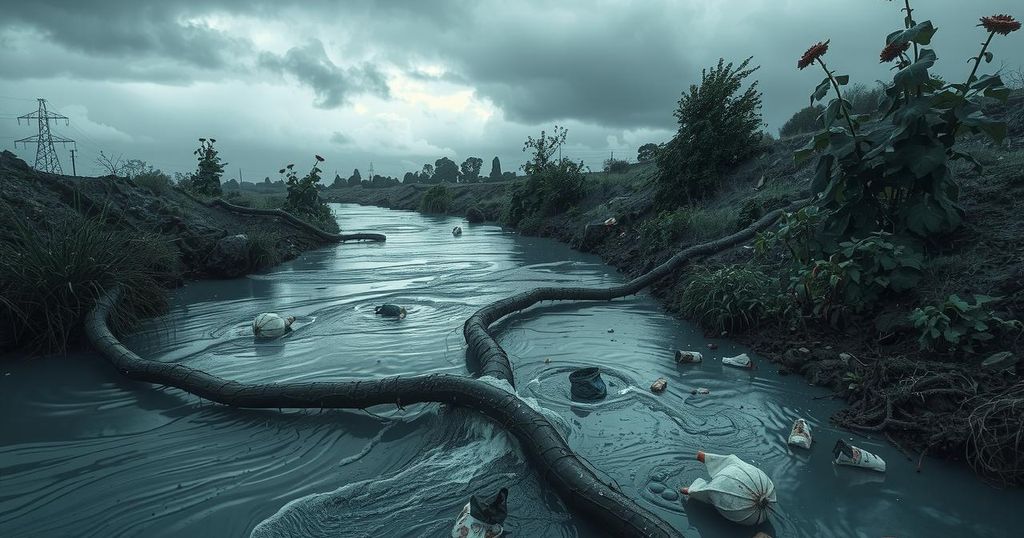A global study reveals alarming toxic pollution levels in rivers across Spain, Ethiopia, Tunisia, Kenya, Nigeria, Pakistan, and India. The Manzanares river in Madrid is identified as the most toxic in Europe, containing dangerous substances. The research highlights a global crisis in river pollution, urging for investments in better treatment technologies to protect health and ecosystems.
A recent global study has uncovered alarming levels of toxic pollution in rivers across multiple countries, including Spain, Ethiopia, Tunisia, Kenya, Nigeria, Pakistan, and India, impacting ecosystems and public health. Research involving over 200 rivers worldwide has demonstrated significant contamination, with the Manzanares river in Madrid identified as the most toxic in Europe, laden with harmful substances like paracetamol, caffeine, and metronidazole.
Conducted by the University of York, the study analyzed water samples from 1,052 locations spanning 104 countries and tested for 61 pharmaceutical compounds. Notably, 25.7% of the rivers exhibited concentrations of pharmaceuticals that pose a threat to aquatic organisms, potentially disrupting their biology and leading to antibiotic-resistant bacteria.
The pollution crisis is not confined to Europe; rivers in Africa, Asia, and Latin America share similar and sometimes worse contamination levels. In Africa, countries like Ethiopia, Tunisia, and Nigeria suffer from severely polluted rivers, while Pakistan and India exhibit critically contaminated water sources. The urgency of this situation calls for enhanced investments in technology and treatment systems to mitigate the influx of pollutants into our waterways.
This study highlights the critical state of river pollution across various continents, underscoring the significant health risks posed to both humans and aquatic life. With over a quarter of rivers tested exhibiting harmful levels of pharmaceuticals, there is a pressing need for advanced environmental management strategies to address this emerging global health crisis. Addressing these issues through technology and better treatment protocols is essential to safeguard ecosystems and public health.
Original Source: www.travelandtourworld.com




